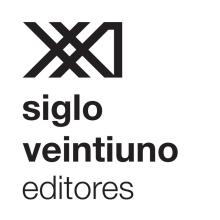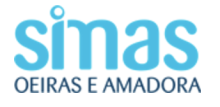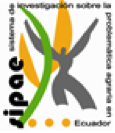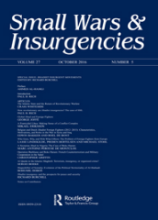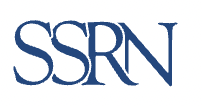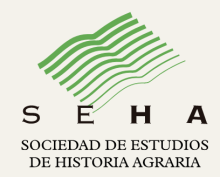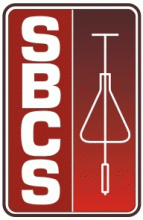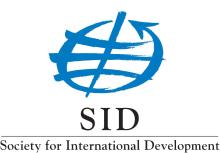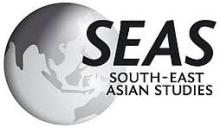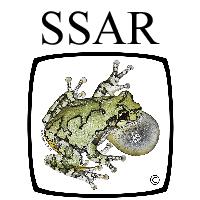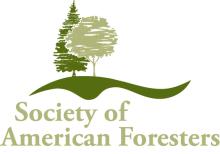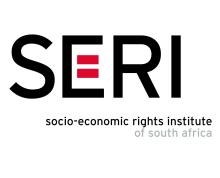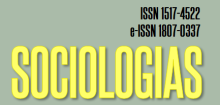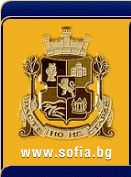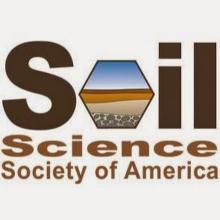The Land Library includes resources from more than 1,900 national and international information providers. Learn more about the organizations and institutions using the Land Portal to share their open-access research, data and stories.
SHWE Gas Movement
The SHWE Gas Movement is concerned with a natural gas pipeline project presently unfolding in Western Burma.
In cooperation with Burma's military junta, a consortium of Indian and Korean corporations are currently exploring gas fields off the coast of Arakan State in Western Burma. Discovered in December 2003, these fields--labeled A-1, or "Shwe" (the Burmese word for gold)--are expected to hold one of the largest gas yields in Southeast Asia. These Shwe fields are destined to become the Burmese military government's largest single source of foreign income.
Sierra Leone Legal Information Institute
Sierra Leone Legal Information Institute ("Sierra LII") is a non-profit organization registered in Sierra Leone that aims to contribute to the continuing national progress by providing free access to the nation’s legal information. Free access to legal information of other countries and regions of the world is also made possible through its affiliation with the Free Access to Law Movement and the global network of Legal Information Institutes.
It was originally established as a legacy project of the Special Court for Sierra Leone (SCSL) in 2010, with generous sponsorship from the Open Society Foundations and was managed by Maria Warren, Chief of Legal Operations of the Office of the Prosecutor. She was assisted by Bridget Osho, Legal Officer, who subsequently served as the sites first Sierra Leonean Coordinator. Bridget has been succeeded by Martina Egbenda who is now the current Coordinator of the Institute.
Membership in Sierra LII is open to all organizations and individuals who are providers and consumers of legal information. The primary target user groups of Sierra LII are members of the Judiciary, Parliament, Legal and associated professions, schools and universitites, the Media, NGO community and the business sector. Free, easily-accessible, up-to-date information delivers two key benefits to various user groups:
enhance the quality of their work
reduce the cost and effort to complete such work.
Siglo XXI Editores
Siglo XXI Editores (también conocida como Siglo Veintiuno editores) es una editorial que se dedica a la publicación de libros especialmente relacionados con la difusión y desarrollo de un pensamiento crítico en historia, filosofía, sociología, política y economía, en las ciencias humanas y sociales en general. Desde 2010 se integra dentro del Grupo editorial Akal junto con Ediciones Akal, Istmo, Foca y HBlume.
Singapore Academy of Law Journal
The Singapore Academy of Law Journal (“SAcLJ”) (ISSN 0218-2009) is a peer-reviewed journal of legal articles relevant to Singapore and the common law legal systems. Other than academic articles, it also carries commentary, case notes, book reviews and selected lectures delivered by distinguished speakers at Singapore Academy of Law lectures.
Articles, commentaries and case notes submitted to the SAcLJ are reviewed by experts in the relevant subject areas of law from the SAcLJ’s Panel of International Referees and other academics, legal service officers and practitioners. The SAcLJ’s double-blind refereeing practice ensures the identities of both author and referee remain anonymous during the refereeing process.
The SAcLJ is published both digitally and in print. All refereed articles, commentaries and case notes will first be published on e‑First (ie, our e-publishing prior-to-print module), and then collated for publication in print.
Publication on e-First is on a rolling basis whilst the print version of the SAcLJ is published in March and September.
All print-published material is available digitally in the e-Archive and also through LawNet, HeinOnline and RMIT.
The Singapore Academy of Law’s Publications Committee is responsible for the content of the SAcLJ.
Singapore Management University
A premier university in Asia, the Singapore Management University (SMU) is internationally recognised for its world-class research and distinguished teaching. Established in 2000, SMU’s mission is to generate leading-edge research with global impact and produce broad-based, creative and entrepreneurial leaders for the knowledge-based economy.
Home to around 10,000 undergraduates and postgraduates, SMU comprises six schools:
- School of Accountancy
- Lee Kong Chian School of Business
- School of Economics
- School of Information Systems
- School of Law
- School of Social Sciences
SMU offers a wide range of bachelor’s, master’s and PhD degree programmes in the disciplinary areas associated with the six schools, as well as in interdisciplinary combinations of these areas.
SMU has an emphasis on generating rigorous, high-impact, and relevant multi-disciplinary research that addresses Asian issues of global relevance, SMU faculty collaborate with leading international researchers and universities from USA, Europe, China and India as well as with partners in the business community and public sector, through its research institutes, centres and labs.
SMU’s city campus is a state-of-the-art facility located in the heart of downtown Singapore, fostering strategic linkages with business, government and the wider community.
Sistema de Investigación sobre la Problemática Agraria en el Ecuador
El SIPAE apunta a fortalecer la producción conceptual y teórica sobre temas agrarios y rurales en el país, para lo cual es imprescindible fortalecer la base de investigación nacional. Ello requiere adicionalmente fortalecer la inserción de la investigación nacional en los debates y corrientes académicas internacionales. Promover estudios de investigación sobre la agricultura social y ambientalmente sostenible en defensa de la soberanía alimentaria y de los derechos colectivos, económicos, sociales, culturales y laborales
Fuente: ILC
Sistema Económico Latinoamericano y del Caribe
El Sistema Económico Latinoamericano y del Caribe (SELA) es un organismo regional intergubernamental, creado el 17 de octubre de 1975 mediante el Convenio de Panamá. Constitutivo del Sistema Económico Latinoamericano (SELA)*, con sede en Caracas, Venezuela. El SELA está integrado por 27 países de América Latina y el Caribe, a saber: Argentina, Bahamas, Barbados, Belice, Bolivia, Brasil, Colombia, Costa Rica, Cuba, Chile, Ecuador, El Salvador, Guatemala, Guyana, Haití, Honduras, Jamaica, México, Nicaragua, Panamá, Paraguay, Perú, República Dominicana, Suriname, Trinidad y Tobago, Uruguay y Venezuela.
Fundamentalmente, el SELA está dirigido a promover un sistema de consulta y coordinación para concertar posiciones y estrategias comunes de América Latina y el Caribe, en materia económica, ante países, grupos de naciones, foros y organismos internacionales e impulsar la cooperación y la integración entre países de América Latina y el Caribe.
*En su XXXI Reunión Ordinaria (21 al 23 de noviembre de 2005), el Consejo Latinoamericano, máxima instancia del SELA dispuso, mediante la Decisión 473, que “Los términos “América Latina” y “latinoamericano”, utilizados en el Convenio Constitutivo del Sistema Económico Latinoamericano deben interpretarse en el sentido de que significan, respectivamente, “América Latina y el Caribe” y “latinoamericano y caribeño” y que, en consecuencia, el nombre de la Organización debe entenderse que significa “Sistema Económico Latinoamericano y del Caribe”.
SIT Graduate Institute
SIT Graduate Institute is a nonprofit, accredited graduate school that offers master's degrees, graduate level certificates, and professional development programs.
Small Wars & Insurgencies
Small Wars & Insurgencies provides an international and interdisciplinary forum for the academic and scholarly discussion of the historical, political, social, economic and psychological aspects of insurgency, counter-insurgency, limited war and irregular warfare. Peer-reviewed and long-established, Small Wars & Insurgencies invites papers concerned with, but not limited to, the following areas:
• insurgencies and guerrilla conflicts past and present
• counterinsurgencies including national doctrines
• terrorist movements and ideologies
• irregular warfare and the debates on its historiography
• peacekeeping and “humanitarian intervention”.
Essential reading, Small Wars & Insurgencies facilitates the discussion of historians, political scientists and students of International Relations and Security Studies on theoretical and practical issues related to the past, present and future of this critical area of both international and domestic politics. The journal is historically focused and is keen to see contributions from scholars using primary and archival sources, as well as interviews. It also welcomes contributions investigating media, literary and cinema representations of insurgencies, counter-insurgencies and irregular warfare. Most issues include an authoritative review section, and the journal’s policy is to have 2–3 special issues each year devoted to specific themes and issues, often edited by guest editors.
SNV
SNV is a non-profit, international development organisation, established in the Netherlands in 1965. We have been present on the ground in developing countries for over 40 years, and now operate in 35 countries in Africa, Asia, Latin America and the Balkans.
What do we do?
Our aim is to alleviate poverty by enabling those on the lowest incomes to be part of social and economic networks and so increase their income and employment opportunities. More than half of our work focuses on economic and private sector development, wherein secured access to natural resources is a key attention point. Alongside this, we contribute to improving people’s access to basic services like water and sanitation, energy and education. We achieve both by strengthening local organisations.
Promoting gender equity and transparent public sector leadership is at the heart of all our work. We believe these principles are essential to building stronger societies.
We work in the areas where our support is most needed. The majority of our advisors are based far from capital cities, in provincial towns and in rural areas, where the challenges of poverty are often greatest. From this sub-national level, we can facilitate links between local and national organisations.
Social and Solidarity Economy
Information on the Social and Solidarity Economy (SSE) is spread across many different websites in various languages. Researchers have not reached a consensus on definitions, and terms are used differently depending on which continent you are on, ranging from popular economy and solidarity economy to social economy and social and solidarity economy (the term we will use on this site). Realities and practices differ. Our aim is to provide a degree of coherence by bringing together as many documents as possible on this site, including case studies, analyses, interviews, accounts of initiatives and proposals, in French, English, Spanish, Portuguese and Italian (and some documents in German with thoption of adding other languages), from all four corners of the world.
In addition to the ideas and concepts that traverse the broad field of the SSE, we also want to highlight the projects and actors that make the sector a real instrument of social transformation throughout the world. By creating a collective resource site with an international reach, we will be demonstrating the comprehensive nature and relevance of the economic paradigm promoted by the SSE.
Social Enterprise Development Centre
The LUMS Social Enterprise Development Centre (SEDC) is working towards capacity building of social enterprises since 2001. Its priority areas include governance, education, health, gender, and micro-finance/poverty reduction.
SEDC harnesses LUMS resources and acts as a facilitator, by providing knowledge based learning to social sector organisations, based on its RTCD strategy i.e.
- Research
- Training
- Consultancy
- Dialogue
Social Science Research Network
SSRN is devoted to the rapid worldwide dissemination of research and is composed of a number of specialized research networks.
Sociedad Española de Historia Agraria
Entre los fines de la SEHA está fomentar la investigación, el intercambio de opiniones, la enseñanza y la divulgación del conocimiento científico referentes a la historia agraria y a la economía y la sociedad rurales, desde una perspectiva interdisciplinaria. La SEHA también pretende propiciar la conservación y facilitar la consulta y uso a todos los investigadores de los archivos y material relativos a las actividades agrarias y a las sociedades rurales a lo largo de las diferentes épocas históricas.
Sociedade Brasileira de Economia e Sociologia Rural
A SOBER é uma Sociedade Científica, Cultural e Educacional que tem o objetivo de desenvolver as ciências sociais rurais (Administração, Economia, Extensão, Comunicação e Sociologia Rural), e suas correlatas. Para atingir estes objetivos a SOBER promove, por meio de seus congressos anuais e da publicação trimestral da Revista de Economia e Sociologia Rural (RESR) , o intercâmbio científico, a pesquisa e o ensino em ciências sociais rurais.
Nosso website está concluído, consolidando todos os serviços em um único endereço na internet. A partir de agora, os sócios da SOBER poderão ter acesso às informações de eventos, enviar artigos para o congresso e a revista, emitir boleto de anuidade, entre outros, em um mesmo endereço on line e com apenas uma senha e login, facilitando todo o trabalho.
Society for Ecological Restoration
Incorporated in 1988, the Society for Ecological Restoration is a global community of restoration professionals that includes researchers, practitioners, decision-makers, and community leaders from Africa, Asia, Australia/New Zealand, Europe, and the Americas. SER members are actively engaged in the ecologically sensitive repair and recovery of degraded ecosystems utilizing a broad array of experiences, knowledge sets, and cultural perspectives.
Drawing from this diverse expertise, SER works at the international, regional, and national levels partnering with government agencies, intergovernmental organizations, NGOs, and the private sector to advance the science and practice of ecological restoration for the benefit of biodiversity, ecosystems, and humans. The Society provides a robust and dynamic platform through which to foster collaboration, knowledge sharing, networking, research, and policy discussions among the many actors and interests it represents.
Society for International Development
SID is an international network of individuals and organizations founded in 1957 to promote social justice and foster democratic participation in the development process. Through locally-driven programmes and activities, SID strengthens collective empowerment, facilitates dialogue and knowledge-sharing on people-centered development strategies, and promotes policy change towards inclusiveness, equity and sustainability. SID has over 30 chapters and 3,000 members in more than 50 countries. The secretariat has three offices in Dar es-Salaam (Tanzania), Nairobi (Kenya) and Rome (Italy).
Society for Range Management
The Society for Range Management is the professional scientific society and conservation organization whose members are concerned with studying, conserving, managing and sustaining the varied resources of the rangelands which comprise nearly half the land in the world. Established in 1948, SRM has over 4,000 members in 48 countries, including many developing nations.
SRM’s members are land managers, scientists, educators, students, producers and conservationists–a diverse membership guided by a professional code of ethics and unified by a strong land ethic.
MISSION
Providing leadership for the Stewardship of Rangelands based on sound ecological principles.
VISION
A well-trained and highly motivated group of professionals and rangeland users working with productive, sustainable rangeland ecosystems.
Society for South-East Asian Studies
SEAS – the Society of South-East Asian Studies – is an interdisciplinary network of young South-East Asia Studies scholars and is based in Vienna, Austria. Our aim is to promote interdisciplinary research and intercultural exchange on South-East Asia. In order to achieve these goals our website serves as an information sharing platform, we provide counsel and advice, conduct conferences and workshops, organize summer schools to South-East Asia and publish ASEAS – Austrian Journal of South-East Asian Studies – a peer-reviewed and interdisciplinary open-access journal.
Society for the Study of Amphibians and Reptiles
SSAR, a not-for-profit (registered 501(c)3) organization established to advance research, conservation, and education concerning amphibians and reptiles, was founded in 1958. It is the largest international herpetological society, and is recognized worldwide for having the most diverse program of publications, meetings, and other activities.
The SSAR Conservation Committee brings conservation issues that affect reptiles and amphibians to the attention of state and federal government agencies, non-government organizations, and herpetologists worldwide. The committee serves as a liaison between the SSAR and public and private groups to provide expert advice, factual knowledge, and educational information about problems confronting amphibians and reptiles, including habitat protection, endangered, threatened, and special concern species, commercial and private use, contaminants, and priorities for conservation-oriented research.
The committee coordinates SSAR responses to proposed national and international legislation and other conservation matters involving reptiles and amphibians. Official responses are submitted for approval by the President and Secretary before public release. Chair submits annual report to Secretary prior to the annual meeting of the Board.
The SSAR also supports numerous grants programs, international exchanges and inter-nation cooperative efforts for study and publications.
Society of American Foresters
The profession of forestry started to take hold in the United States in late 1800s. In 1889, George Vanderbilt hired Gifford Pinchot (pictured at right), a young forester educated in Europe, to manage the forest at the Biltmore Estate. It was the nation’s first professionally managed forest.
In 1891 Congress passed the Forest Reserves Act, which created a reserve of 40 million acres of forestland in the United States. Six years later in 1897, Congress passed the Organic Act, which served as the basis for management of the newly created forest reserves.
At the time, there were fewer than 10 individuals in the nation with any formal forest-management training, and all of them studied in Europe. That changed in 1898, when the Biltmore Forest School and the New York State College of Forestry at Cornell started forestry education programs. Two years later, the Yale School of Forestry began training professionals to manage this vital resource.
Pinchot believed that high standards were essential to bring a level of dignity to this new profession that equaled that of other professions. On November 30, 1900, Pinchot asked seven professional foresters to join him in his office at the Department of Agriculture. The result of that gathering was the formation of SAF.
SAF’s objective was “to further the cause of forestry in America by fostering a spirit of comradeship among foresters; by creating opportunities for a free interchange of views upon forestry and allied subjects; and by disseminating a knowledge of the purpose and achievements of forestry.” Pinchot served as the Society’s first President from 1900 to 1908 and then again from 1910 to 1911.
As the Society grew, so did its programs. A national meeting, held outside Washington, DC, took place on 1914 in Ithaca, New York. The Journal of Forestry was published in January 1917 to bring the latest scientific information about forest management to its members. In 1935, SAF began the accreditation of forestry programs, which has expanded to four standards. In 1994, SAF created the Certified Forester program—the national certification program for foresters and other natural resources professionals. In 1995, SAF launched The Forestry Source newspaper to bring the latest news about forestry and the Society’s activities directly to members.
Today, SAF is a 12,000-member community that has held true to its original objective to bring forestry and natural resources professionals together and keep them informed about the latest advances in forest science and management.
Socio-Economic Rights Institute of South Africa
SERI is a public interest legal services organisation that provides pro-bono assistance to communities through research, advocacy and litigation across three main themes: ‘Securing a Home’, ‘Making a Living’ and ‘Expanding Political Space’.
Sociologias
Sofia Municipality
Sofia Capital Municipality (Bulgarian: Столична община, Stolichna obshtina - Capital Municipality) is a obshtina (municipality) in Sofia City Province, Western Bulgaria. It is named after its administrative centre - the city of Sofia, which is also the capital of Sofia City Province and Sofia Province and the capital of Bulgaria as well.
(Source: Wikipedia)
SOGES
SOGES S.p.a. is a consulting and training company for private and public enterprises.
In SOGES we work alongside companies, organizations and institutions to finalize their development plans. Our goal is to help organizations to grow and evolve, through innovative, customized and sustainable solutions, with which to face the challenges of tomorrow.
MISSION
We support people in building their future through our skills, energy and experience.
VISION
We contribute to society by supporting the ethical and sustainable development of people, organizations and institutions.
VALUES
We foster a proactive and responsible attitude, focused on concrete results, by encouraging a climate of inside and outside collaboration and cooperation, based on listening and partnerships.
Soil Science Society of America
The Soil Science Society of America (SSSA) is a progressive international scientific society that fosters the transfer of knowledge and practices to sustain global soils. Based in Madison, WI, and founded in 1936, SSSA is the professional home for 6,000+ members and 1,000+ certified professionals dedicated to advancing the field of soil science. The Society provides information about soils in relation to crop production, environmental quality, ecosystem sustainability, bioremediation, waste management, recycling, and wise land use.
SSSA supports its members and certified professionals by providing quality research-based publications, educational programs, certifications, and science policy initiatives via a Washington, DC office. Founded in 1936, SSSA celebrated the International Year of Soils in 2015.
Because of their common interests, SSSA, the American Society of Agronomy, and Crop Science Society of America share a working relationship. Each organization is autonomous with its own bylaws and governing boards of directors.
Solidaridad
The Solidaridad Network is an international civil society organisation founded in 1969. Its main objective is facilitating the development of socially responsible, ecologically sound and profitable supply chains. It operates through nine regional expertise centers in over 50 countries. Solidaridad seeks to transform production practices to promote fair and profitable livelihoods and business opportunities, decent working conditions and a fair living wage. Solidaridad without depleting the landscapes where people live and thrive.



